Winter brings many challenges for the backyard chicken-keeper, and frozen water is chief among them. You can make your own waterer heater for use with either metal or plastic waterers. It will cost less than $10, cost pennies to run and you can complete the project in under ten minutes!
We had record-breaking, sub-zero temperatures for long periods of time in 2010 here in Connectictut and my waterers never iced over the way they used to without these heaters. It doesn’t seem as though a humble, 40 watt lightbulb should be able to produce enough warmth to keep the water in a plastic waterer from icing over, but remarkably, it does!
Supplies:
-
10″, metal cookie tin (available at most dollar & thrift stores & likely in your garage or basement)
-
lamp assembly kit (available oniline, at hardware & home improvement stores OR buy a thrift store/tag sale lamp and take it apart)0
- 40 watt, incandescent light bulb (in deep-freeze conditions, use a 60 watt bulb)(in light of the government phase-out, some users recommend 40 watt candelabra bulbs or CFL bulbs, but I have not, so I cannot vouch for their effectiveness)
- Drill with 3/8″ drill bit
INSTRUCTIONS:
1. Drill a hole in the side of the cookie tin.
2. String the pre-threaded lamp stem assembly through the hole & tighten the screw on the stem.
3. Screw in the light bulb. Voila!
TO USE:
Put the top on the cookie tin and place the tin on a cinder block or another level surface in the chicken run. Plug into a GFI outlet. Place metal or plastic waterer on top of the water heater when freezing temperatures are anticipated. Disconnect when not in use or use a ThermoCube to turn the unit on when temperatures reache 35°F.
When I made my first cookie tin water heater, I found it difficult to believe that this device, which barely felt warm to the touch, could possibly do the intended job. I was only convinced the first frigid morning I went out into the run and found no ice ring to chip out of the waterer. You may have to try it to believe it too.
Kathy Shea Mormino
Affectionately known internationally as The Chicken Chick®, Kathy Shea Mormino shares a fun-loving, informative style to raising backyard chickens. …Read on


shop my SPONSORS
Winter brings many challenges for the backyard chicken-keeper, and frozen water is chief among them. You can make your own waterer heater for use with either metal or plastic waterers. It will cost less than $10, cost pennies to run and you can complete the project in under ten minutes!
We had record-breaking, sub-zero temperatures for long periods of time in 2010 here in Connectictut and my waterers never iced over the way they used to without these heaters. It doesn’t seem as though a humble, 40 watt lightbulb should be able to produce enough warmth to keep the water in a plastic waterer from icing over, but remarkably, it does!
Supplies:
-
10″, metal cookie tin (available at most dollar & thrift stores & likely in your garage or basement)
-
lamp assembly kit (available oniline, at hardware & home improvement stores OR buy a thrift store/tag sale lamp and take it apart)0
- 40 watt, incandescent light bulb (in deep-freeze conditions, use a 60 watt bulb)(in light of the government phase-out, some users recommend 40 watt candelabra bulbs or CFL bulbs, but I have not, so I cannot vouch for their effectiveness)
- Drill with 3/8″ drill bit
INSTRUCTIONS:
1. Drill a hole in the side of the cookie tin.
2. String the pre-threaded lamp stem assembly through the hole & tighten the screw on the stem.
3. Screw in the light bulb. Voila!
TO USE:
Put the top on the cookie tin and place the tin on a cinder block or another level surface in the chicken run. Plug into a GFI outlet. Place metal or plastic waterer on top of the water heater when freezing temperatures are anticipated. Disconnect when not in use or use a ThermoCube to turn the unit on when temperatures reache 35°F.
When I made my first cookie tin water heater, I found it difficult to believe that this device, which barely felt warm to the touch, could possibly do the intended job. I was only convinced the first frigid morning I went out into the run and found no ice ring to chip out of the waterer. You may have to try it to believe it too.



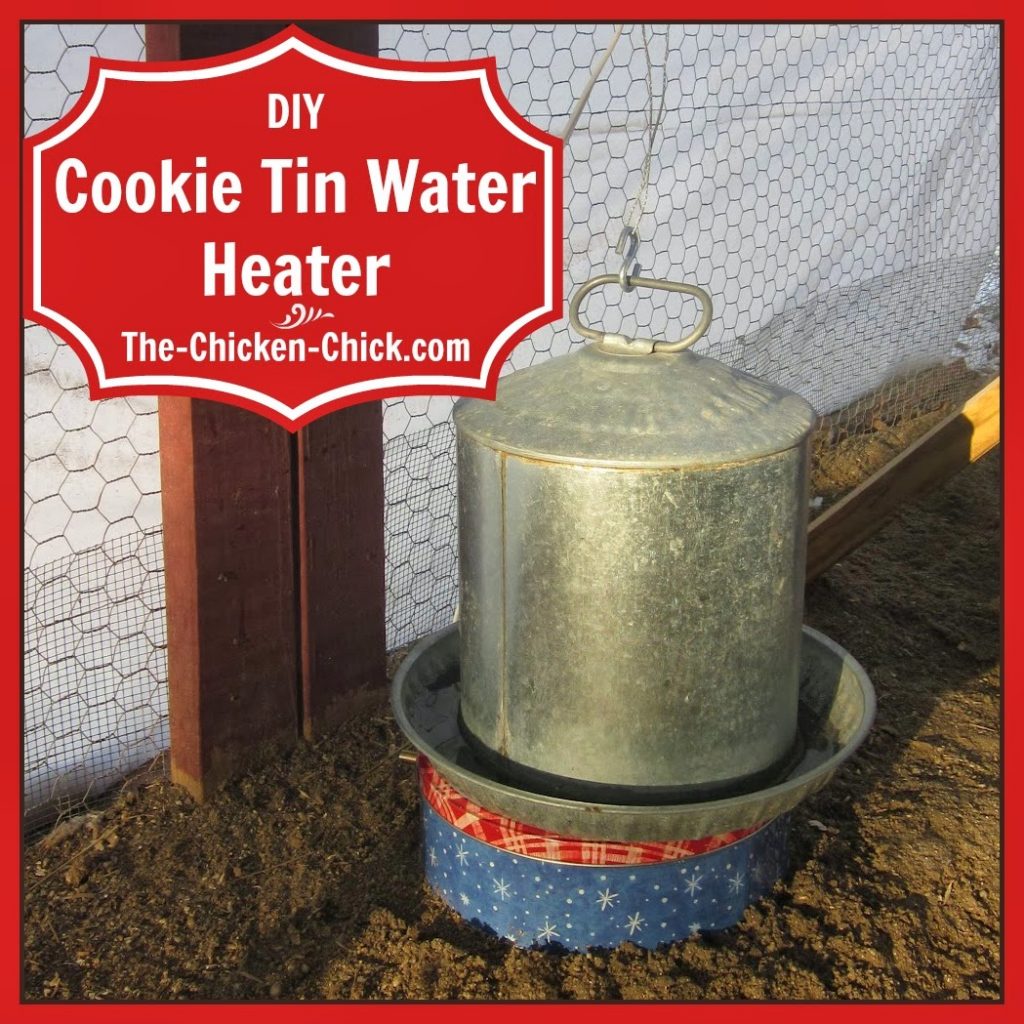
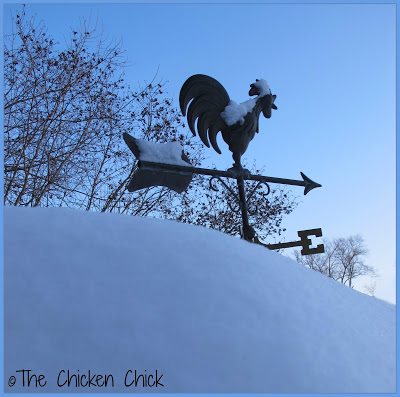
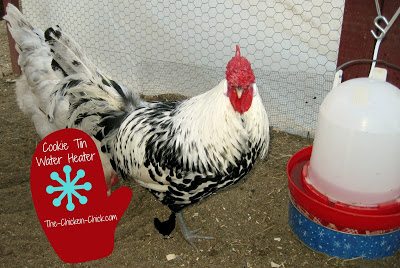
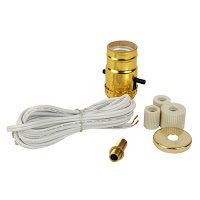
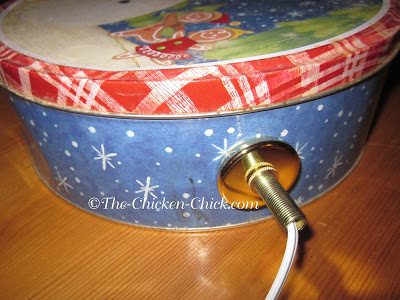
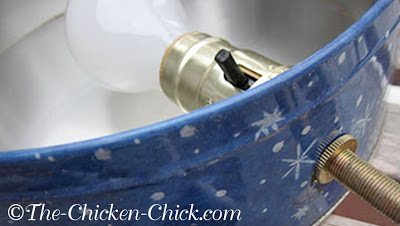
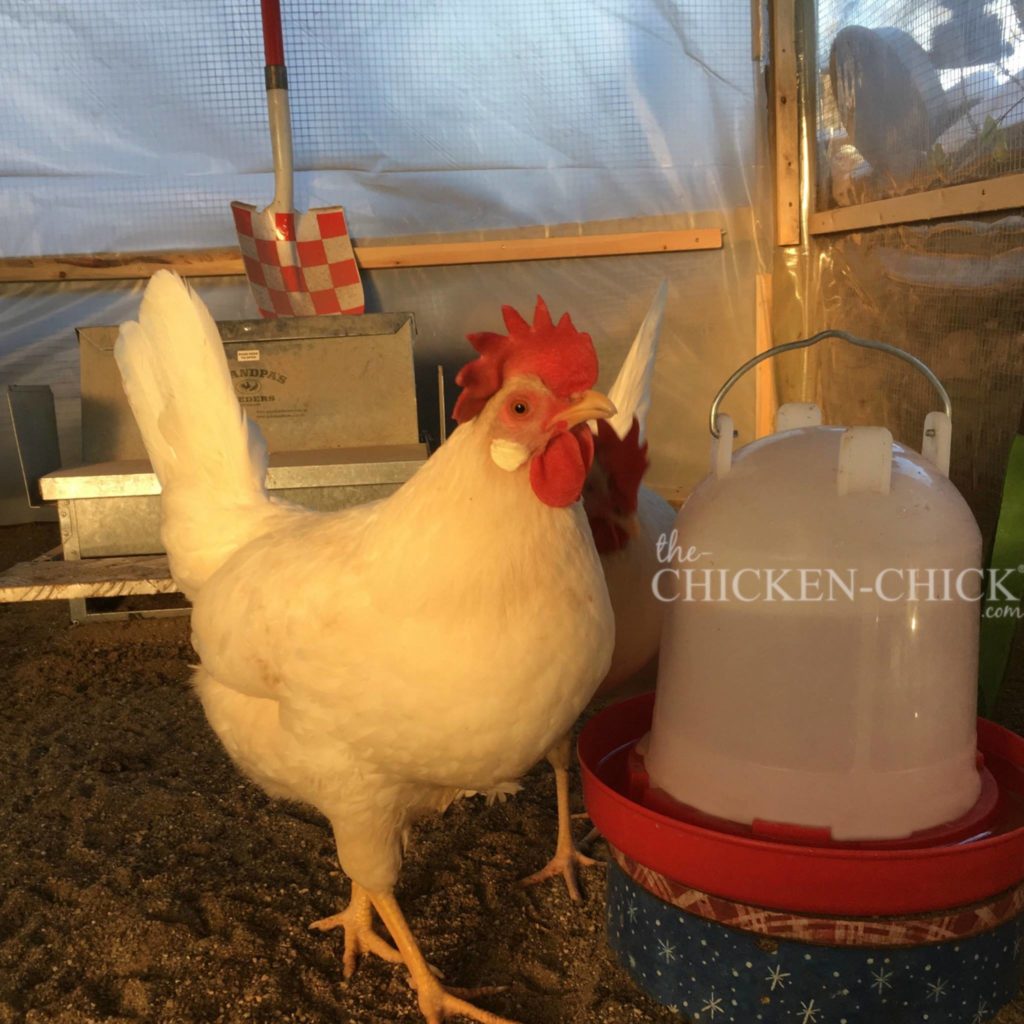
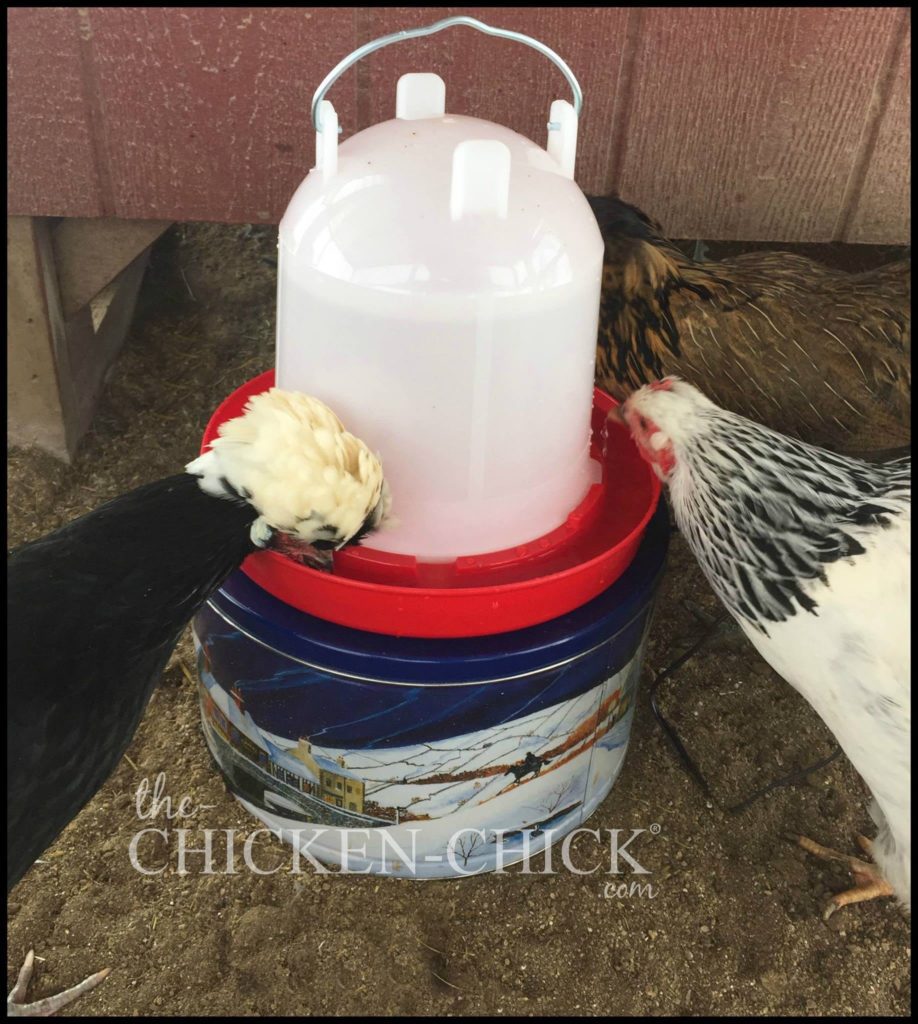
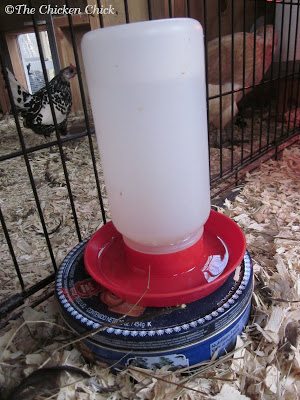
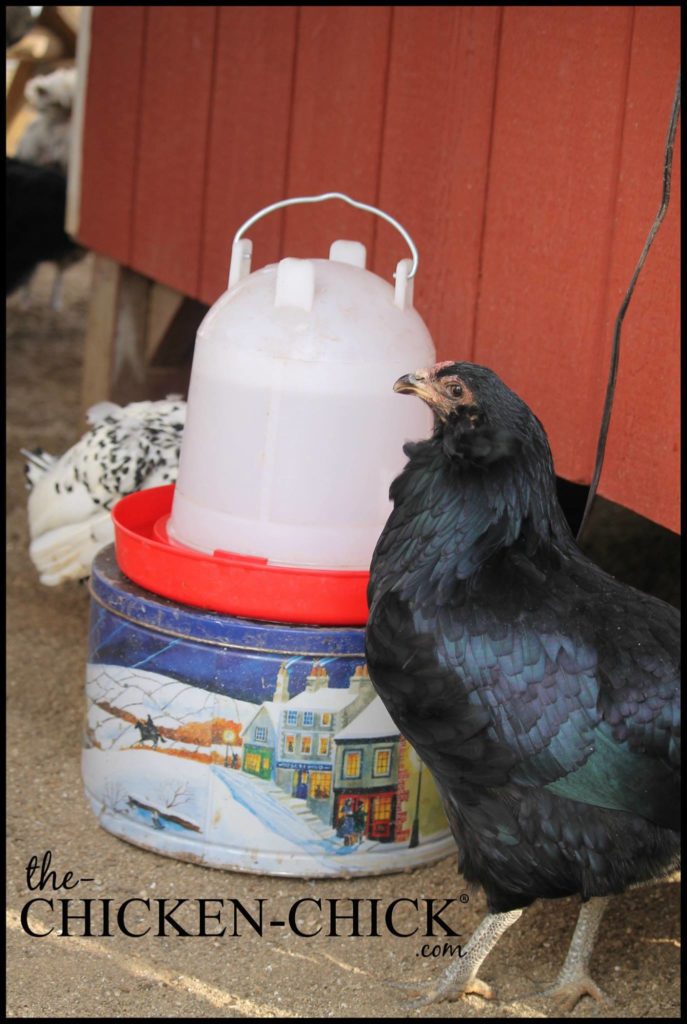






















I'm not sold on the water nipples. I switched to a regular waterer for the winter, I found the chickens drinking twice as much water as with the nipples. Makes me wonder. Any comments?
Hi I am using one of these now and have been for 4 or 5 yrs. But it did ice up when the temp went to 4 degrees. but just on top. I have to watch mine to prevent it from getting to warm at 30 some degrees. I usually change the power of the light bulb in slightly warmmer temps. Warm water grows bacteria quickly so I add unpasteurized vinegar with the mother. This has been the best Idea ever for my hens.
This today http://muhamadbahrululum.blogspot.com/2014/11/rumah-idaman-investasi-masa-depan.html
I'm still worried about them pecking the elec wire. I was wondering about heating bricks and putting them in the cookie tin. I've read of people with wood stoves warming their bricks right on their stove surface.
This is a great idea